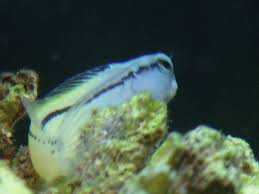
**Introduction**
Feeding cats tomatoes is a topic that requires careful consideration due to potential risks associated with certain compounds found in these fruits. In this article, we share insights and advice from veterinary experts to guide cat owners in making informed decisions about incorporating tomatoes into their feline companion’s diet.
**1. Nutritional Considerations**
*Dr. Emily Rodriguez, DVM, MPH*
“Tomatoes contain various compounds, including solanine, which can be harmful to cats in excess. While ripe tomatoes in small amounts may not pose immediate threats, it’s important to recognize that cats have specific nutritional needs. Tomatoes should not replace a balanced and purpose-formulated cat diet. Always consult with a veterinarian before introducing any new food to ensure it aligns with your cat’s health requirements.”
**2. Individual Variation and Allergies**
*Dr. Marcus Thompson, BVetMed*
“Cats, like humans, exhibit individual variations in their reactions to certain foods. While some cats may tolerate small amounts of ripe tomatoes, others may experience allergic reactions or gastrointestinal distress. It’s crucial to monitor for any signs of discomfort, such as itching, swelling, or changes in behavior. If you notice adverse reactions, consult with your veterinarian to determine the best course of action.”
**3. The Importance of Ripe Tomatoes**
*Dr. Sarah Chang, VMD*
“When considering offering tomatoes to cats, opt for ripe ones with lower solanine content. Unripe or green tomatoes have higher levels of solanine, which can lead to toxicity. Always remove any green parts, including stems and leaves, before offering tomatoes to your cat. Supervision during feeding is key to ensuring that cats consume tomatoes in safe amounts.”
**4. Caution with Unusual Behaviors**
*Dr. James Baker, DVM*
“Unusual behaviors, such as persistent attempts to consume tomatoes or a sudden aversion to certain foods, may indicate potential issues. Cats may be drawn to tomatoes due to their unique scent or texture, but caution should be exercised. If you notice any concerning behaviors, consult with your veterinarian. It’s better to be proactive in addressing potential problems before they escalate.”
**5. Veterinary Consultation**
*Dr. Nicole Carter, PhD, DVM*
“Before introducing tomatoes or any unconventional food into your cat’s diet, consult with your veterinarian. Veterinarians can offer personalized advice based on your cat’s health status, dietary needs, and potential sensitivities. Regular veterinary check-ups are essential to monitor your cat’s overall well-being and address any concerns promptly.”
**6. Conclusion: Prioritizing Cat Health**
In conclusion, while cats may exhibit curiosity towards tomatoes, their safety and well-being should always be the top priority. Expert insights emphasize the importance of consulting with veterinarians, understanding individual variations, and practicing caution in introducing tomatoes into a cat’s diet. Responsible pet ownership involves a collaborative approach between cat owners and veterinary professionals to ensure that dietary choices align with feline health requirements.










